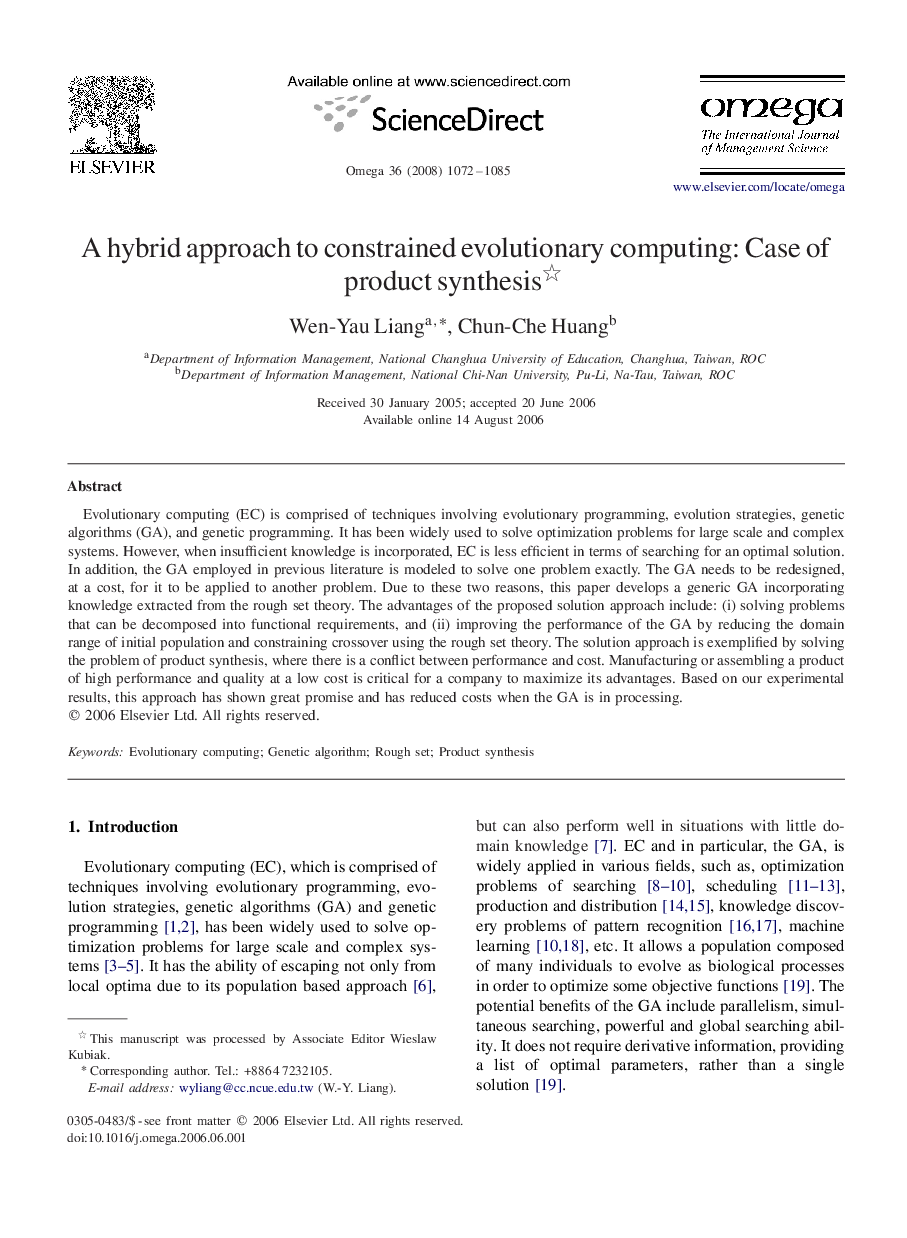| Article ID | Journal | Published Year | Pages | File Type |
|---|---|---|---|---|
| 1033052 | Omega | 2008 | 14 Pages |
Abstract
Evolutionary computing (EC) is comprised of techniques involving evolutionary programming, evolution strategies, genetic algorithms (GA), and genetic programming. It has been widely used to solve optimization problems for large scale and complex systems. However, when insufficient knowledge is incorporated, EC is less efficient in terms of searching for an optimal solution. In addition, the GA employed in previous literature is modeled to solve one problem exactly. The GA needs to be redesigned, at a cost, for it to be applied to another problem. Due to these two reasons, this paper develops a generic GA incorporating knowledge extracted from the rough set theory. The advantages of the proposed solution approach include: (i) solving problems that can be decomposed into functional requirements, and (ii) improving the performance of the GA by reducing the domain range of initial population and constraining crossover using the rough set theory. The solution approach is exemplified by solving the problem of product synthesis, where there is a conflict between performance and cost. Manufacturing or assembling a product of high performance and quality at a low cost is critical for a company to maximize its advantages. Based on our experimental results, this approach has shown great promise and has reduced costs when the GA is in processing.
Related Topics
Social Sciences and Humanities
Business, Management and Accounting
Strategy and Management
Authors
Wen-Yau Liang, Chun-Che Huang,
